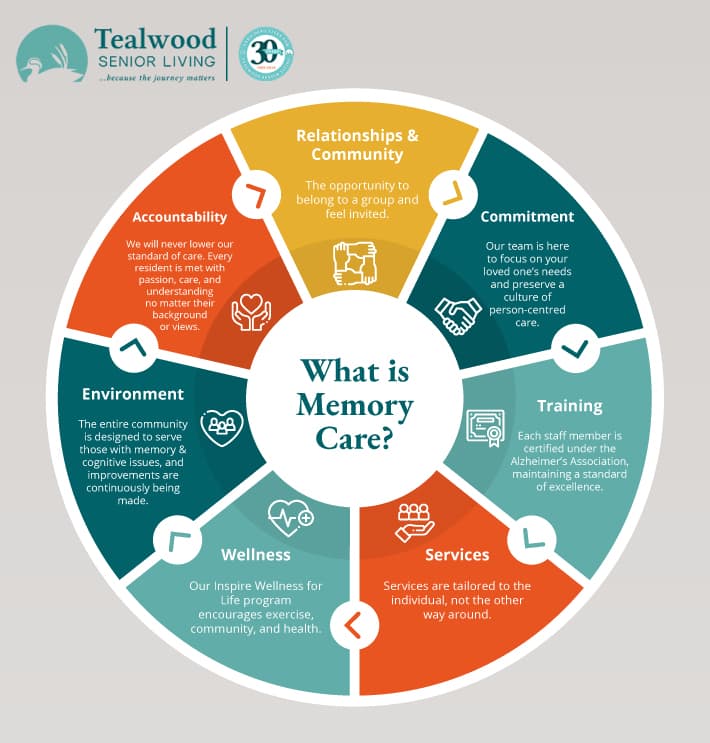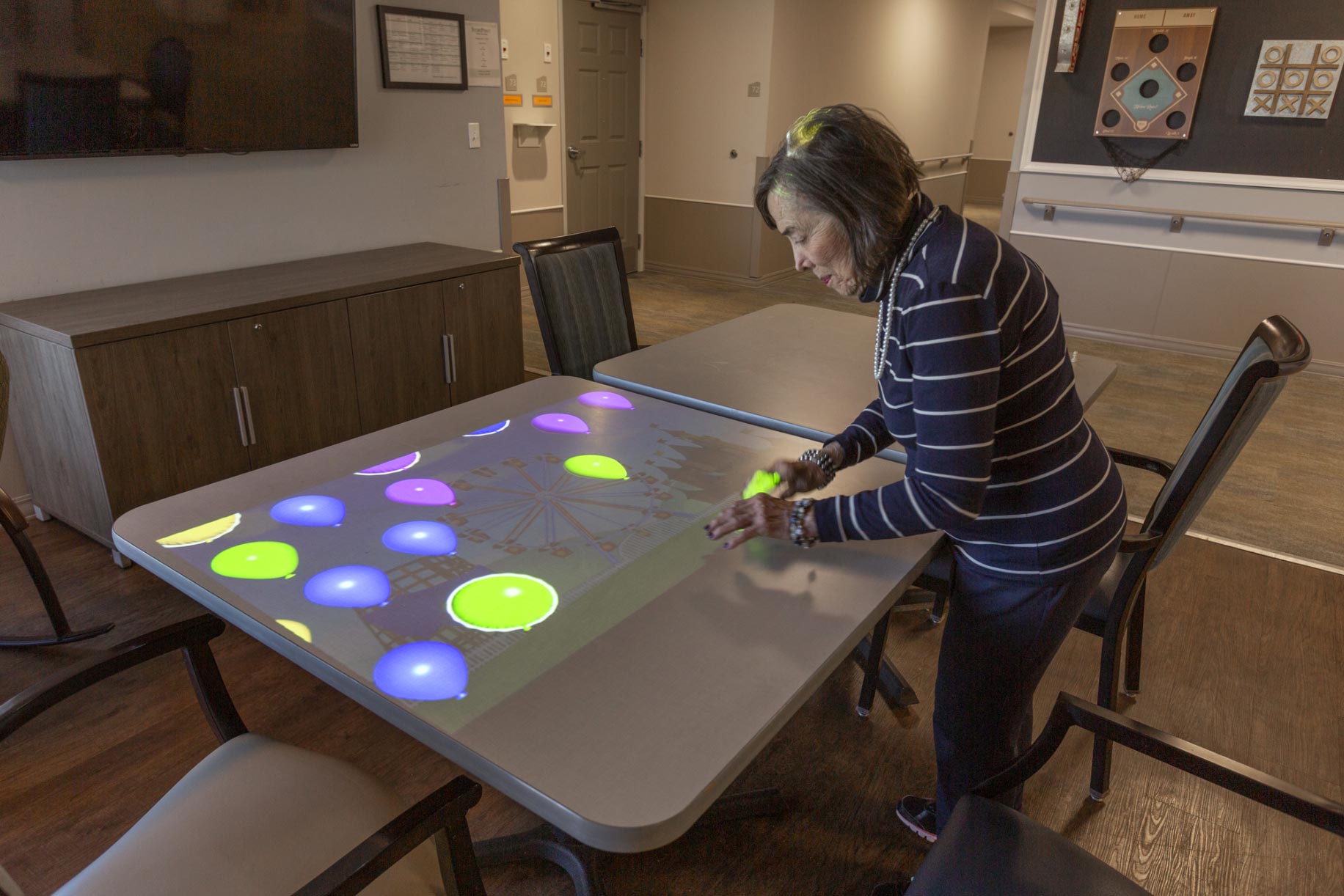Comprehensive Memory Care Programs with Alzheimers Care Charlotte Solutions
Comprehensive Memory Care Programs with Alzheimers Care Charlotte Solutions
Blog Article
Creating a Safe and Supportive Setting for Alzheimer's Care
The production of a safe and supportive environment for individuals with Alzheimer's is critical in improving their high quality of life. Discovering these complex approaches can reveal important understandings into effective caregiving techniques that may transform the daily experiences of both clients and caregivers.
Comprehending Alzheimer's Requirements
Often, people with Alzheimer's disease exhibit a series of needs that call for customized approaches to care. As the problem proceeds, cognitive decrease shows up in different methods, affecting memory, reasoning, and also the ability to perform daily tasks. Caretakers must identify these advancing demands to supply proper assistance and make certain a greater high quality of life for those impacted.
One crucial aspect of recognizing Alzheimer's demands is identifying the value of routine and knowledge. People typically discover comfort in well-known patterns, which can minimize stress and anxiety and confusion. Caretakers should make every effort to produce structured day-to-day routines that include meaningful tasks lined up with the individual's rate of interests and abilities.
Additionally, reliable communication is extremely important. Individuals with Alzheimer's might struggle to express themselves or comprehend intricate language. Caregivers need to employ simple, clear language, use non-verbal hints, and practice energetic listening to cultivate understanding and connection.
Last but not least, social and psychological needs can not be ignored. Offering possibilities for social interaction and preserving partnerships can substantially improve emotional wellness. Caretakers should motivate involvement in neighborhood activities or household celebrations, promoting a sense of belonging and function. Comprehending these varied needs is necessary for creating a helpful treatment setting.
Creating a Safe Home
Developing a risk-free home for people with Alzheimer's disease is essential to decreasing risks and advertising independence. Make certain that pathways are well-lit and clear, as appropriate illumination minimizes disorientation and boosts wheelchair.
Incorporating flexible features is additionally important. Set up grab bars in restrooms and near staircases, and think about making use of non-slip mats in damp areas. Furthermore, utilizing different colors for floors and wall surfaces can aid in differentiating rooms, assisting to minimize confusion.
Knowledge is essential for people with Alzheimer's. Personalizing the atmosphere with acquainted objects and photos can enhance a sense of belonging and protection - Alzheimers Care Charlotte. It is also valuable to have an assigned location for day-to-day activities, such as reading or crafting, which can give structure to their day
Lastly, carrying out a safe and secure outdoor area enables secure exploration while getting in touch with nature. By thoughtfully creating the home setting, caretakers can considerably improve the lifestyle for people living with Alzheimer's disease.
Enhancing Communication Skills

Non-verbal communication, including faces, motions, and touch, plays a vital function in conveying compassion and understanding. Preserving eye contact and a tranquil demeanor can boost the comfort level of the person, promoting a feeling of safety and security.
Furthermore, it is necessary to exercise energetic listening. This involves being totally present, revealing persistence, and allowing the individual to express themselves without disturbance. Repeating may be essential; caregivers should be prepared to revisit subjects or questions, as people with Alzheimer's may fight with memory recall.
Additionally, using visual help or hints, such as pictures or familiar things, can assist in acknowledgment and interaction. Ultimately, improving communication skills has to do with Web Site developing trust fund and producing a setting where individuals really feel listened to, valued, and recognized, thus improving their lifestyle.
Motivating Social Communication
Fostering purposeful social communications can considerably boost the well-being of individuals with Alzheimer's condition. Involving with others not only assists fight sensations of isolation however additionally stimulates cognitive function and emotional wellness. Structured social tasks, such as group games, crafts and arts, or music therapy, produce possibilities for homeowners to connect with peers and caregivers, which can cause boosted state of mind and reduced anxiety.
Producing an inviting setting that encourages socialization is necessary. This can be attained by preparing public rooms that facilitate interaction, such as comfortable seating areas or activity rooms. Furthermore, integrating familiar and culturally appropriate activities can stimulate memories and motivate involvement, allowing individuals with Alzheimer's to feel more linked to their previous experiences.
Additionally, caregivers need to be educated to recognize and advertise social interaction among homeowners. By focusing on social interaction, we can dramatically enhance the lives of those living with Alzheimer's, fostering a feeling of community and belonging.
Sustaining Caregiver Health

To support caregivers, companies need to offer routine training and academic sources to boost their understanding of Alzheimer's disease and caregiving techniques. Supplying accessibility to reprieve treatment solutions allows caregivers to take required breaks, minimizing anxiety and exhaustion - Alzheimers Care Charlotte. In addition, fostering a community through support groups can help with emotional sharing and the exchange of functional recommendations amongst caretakers, developing a network of common assistance
Psychological health and wellness sources, such as therapy services, can also be crucial in resolving the psychological toll caregiving can take. By focusing on caretaker wellness, we produce a more sustainable caregiving environment that not only profits the caretakers themselves yet likewise improves the general high quality of care received by individuals with Alzheimer's. Ultimately, sustaining caretakers is an essential part in cultivating a thoughtful and efficient treatment setup.
Final Thought
Finally, the creation of a helpful and safe environment for people with Alzheimer's is necessary to improving their quality of life. By focusing on safety and security with thoughtful design, cultivating emotional well-being with acquainted aspects, and promoting involvement with structured regimens, caretakers can considerably impact the total experience of those impacted by this problem. Additionally, supporting caretaker wellness is essential, as it inevitably contributes to a more compassionate and efficient treatment atmosphere.
Rep may be this hyperlink essential; caregivers need Get More Info to be prepared to review subjects or concerns, as people with Alzheimer's might have a hard time with memory recall.

Report this page